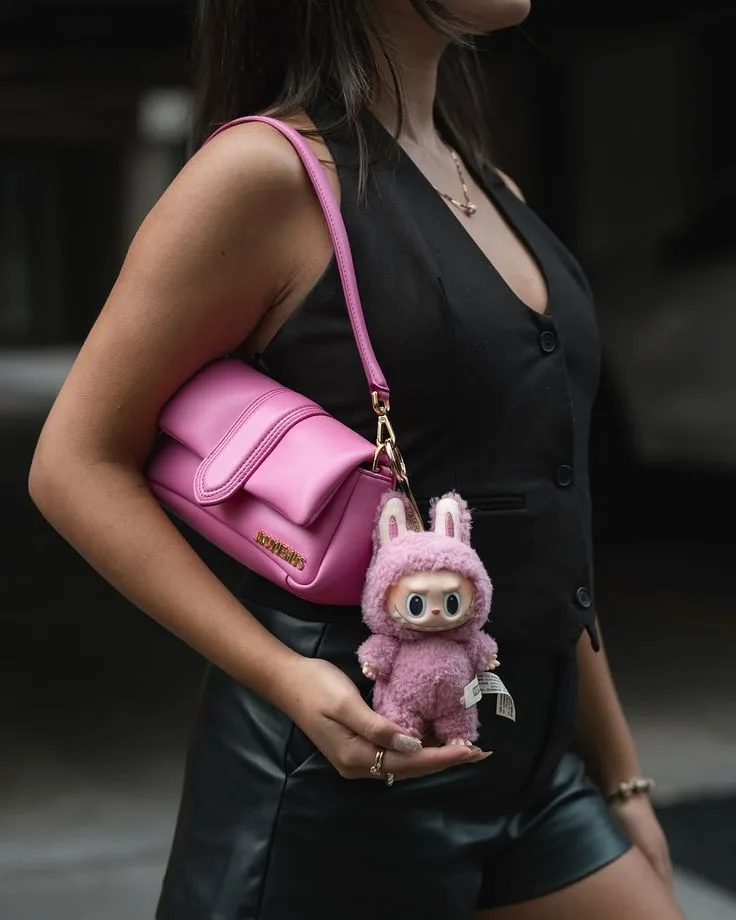Another internet craze is sweeping the fashion industry in the UAE and beyond, but do we actually like the Labubu?
We live in a time where we’re told we’ve never been freer to express ourselves. We celebrate individuality. We praise authenticity. We’re constantly reminded to “be real,” to embrace our flaws, to show up as we are, because there isn’t a one-size-fits-all approach to life. But look a little closer at our approach to viral crazes, and perhaps that isn’t quite the case. A great example? The Labubu.
You’ve seen them everywhere—those creepy-eyed, cartoonish dolls with plump cheeks and button noses. Suddenly, everyone wants one. Celebrities have shown theirs off on Instagram; influencers have posted unboxings; even people who had never cared much for collectibles before have rushed to get their hands on one. It wasn’t just about owning a doll—it was about being part of something, signalling that you were in the know, part of the trend, and aligned with the aesthetic.
But here’s the thing: when you ask people why they got a Labubu, the answers are usually, “I don’t know, it’s just… cute,” or, “Everyone has one, and I didn’t want to miss out.” It seems most people wanted one because, well, it was the thing to want.
This isn’t just about Labubus—it’s a symbol of a wider phenomenon. We seem to be stuck in a loop. A loop where trends dictate our lives and desires, where wanting something can become more about belonging than genuine preference. We might think we live in a world where it’s cool to “be yourself” and “you do you.” But look around, and you’ll see a creeping sameness. From our carefully curated social feeds to our face contouring, our clothes, our homes—we’re all chasing the same trends, often without stopping to ask why.
So are we buying into aesthetics not because they resonate with us, but simply because they’re trending? Do we mimic influencers’ styles not because they reflect our personalities, but because we fear falling behind? Even our rebellion—our views, our beliefs—can feel like a reaction to what’s strategically marketed and tendered to us. Have we turned authenticity into another form of performance? It really makes you wonder—are we all just suffering from a major case of FOMO and just don’t realise it?

It’s not just style or social media. The way we think about beauty and life has also collapsed into a narrow, viral ideal. The casual rise of fillers, sculpted cheekbones, pouty lips, sharp jaws—many of us are chasing the same perfected look, even when we tell ourselves we’re “just enhancing” what we naturally have. The result? We’re starting to resemble each other, and most of us don’t even recognise it.
Case in point—the reason that style icons like Marilyn Monroe, Sophia Loren and Grace Kelly stood out wasn’t because they conformed—they rather embraced who they were. Would we even look at them as such influential tastemakers if they had all looked the same? Isn’t the beauty of human existence in how different we are—from our looks, to our life decisions, to who we love?
So here’s the uncomfortable question: do we even know what we truly like anymore? Or are we simply snapping up Labubu like lemmings?
Lead Image credits: Pinterest @/ Danieelady


